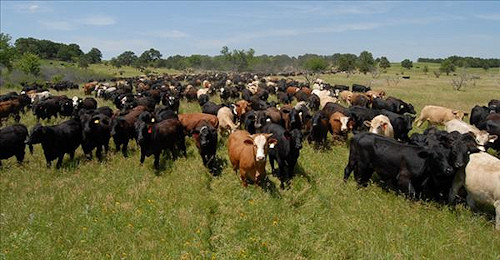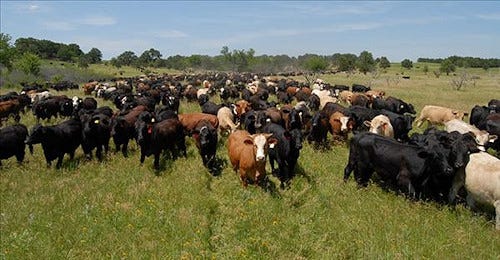
This winter when I was in Florida for a national grazing lands meeting I attended a session titled "Mob grazing to control smutgrass."
That's not what it was about.
It was about research on doubling the stocking density from 3,000 pounds per acre to 6,000 pounds per acre and measuring "control" of smutgrass or lack thereof.
Of course, the researchers were able to find no measurable improvement in smutgrass grazing by the cattle at these low-density stocking levels.
Those of you who understand the concept of "mob" grazing and its purposes are probably shaking your heads about now. If you're not, please stick with me while I elaborate briefly why I'm shaking mine.

Related: Consider Mob Grazing Cattle On Farm Ground
First of all, the term "mob grazing" implies the livestock are bunched up into a "mob." In practical application and looking at grazing management historically, this implies very high stock density and frequent moves. I would argue regardless of stock density if you aren't moving cattle at least twice a day you're not mob grazing.
Personally, I tend to think of mob grazing, or ultra-high stock density grazing, as starting somewhere around 125,000 pounds per acre and going up from there.
Perhaps more important, I want to argue the case that mob grazing isn't cool, or in vogue or the trendy thing to do. It has ecological purposes and they are the primary reasons to do it.
Also, practiced graziers who understand the forage-cattle interaction know mob grazing can produce good gains for cattle and much higher than average gains from the land.
It's all additive, if done well.
I'll use the term "mob grazing" hereafter in this column because it's short and easy to write.
In brief, mob grazing provides much more uniform consumption of the forage, distribution of manure and urine, and trampling of uneaten forage down onto the soil, where it can protect and feed the soil life.
Related: Summer beef cattle grazing strategies vary, but ideal outcome is the same
It also provides very short graze periods and very long recovery periods. Both these are good for the best forage species in most environments.
Further, all these things are great for the ecosystem processes, the nutrient cycle, mineral cycle, solar cycle and community dynamics. I've written a lot about this over the years and I learned all this from Allan Savory and his Holistic Management book and the companion workbook which is now out of print. Frankly, as far as I can tell this is where everyone has learned these things in the last 30 years or so. If you haven't read the book, I recommend it.
Anyway, to finish my rant, I wish people would stop talking about mob grazing and start learning more about how and why it works, as well as considering when and where they might want to practice it, if at all.
Think of it as another land management tool, just like you should view all grazing. Mob grazing just tends to be a way to improve the land faster than other methods. There is something magic about high stock density but it takes planning, time, knowledge and effort.
It's not cool. It is amazing.
Continued coverage: Reader Says Grazing Management Doesn't Pay, Quality Does
About the Author(s)
You May Also Like




